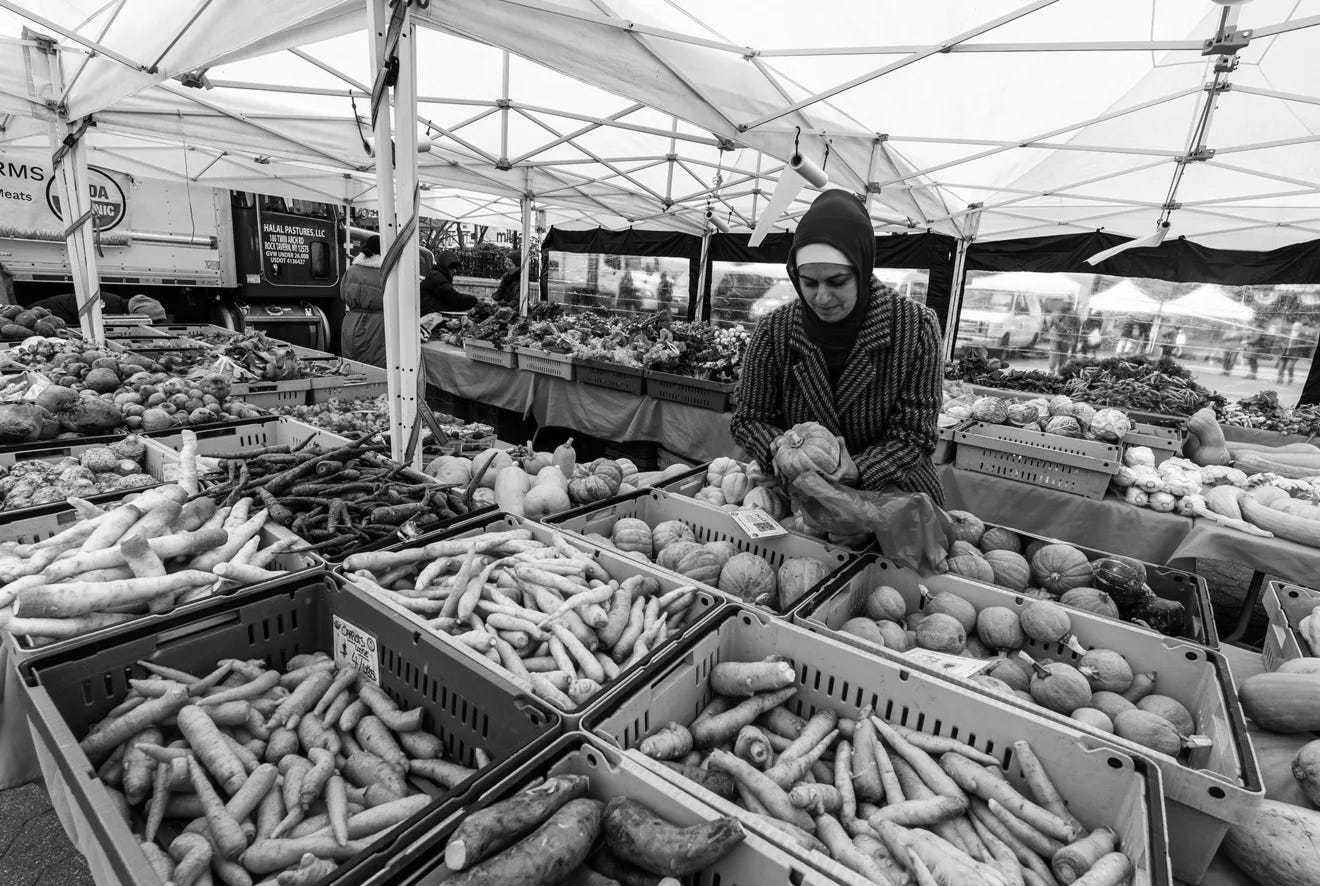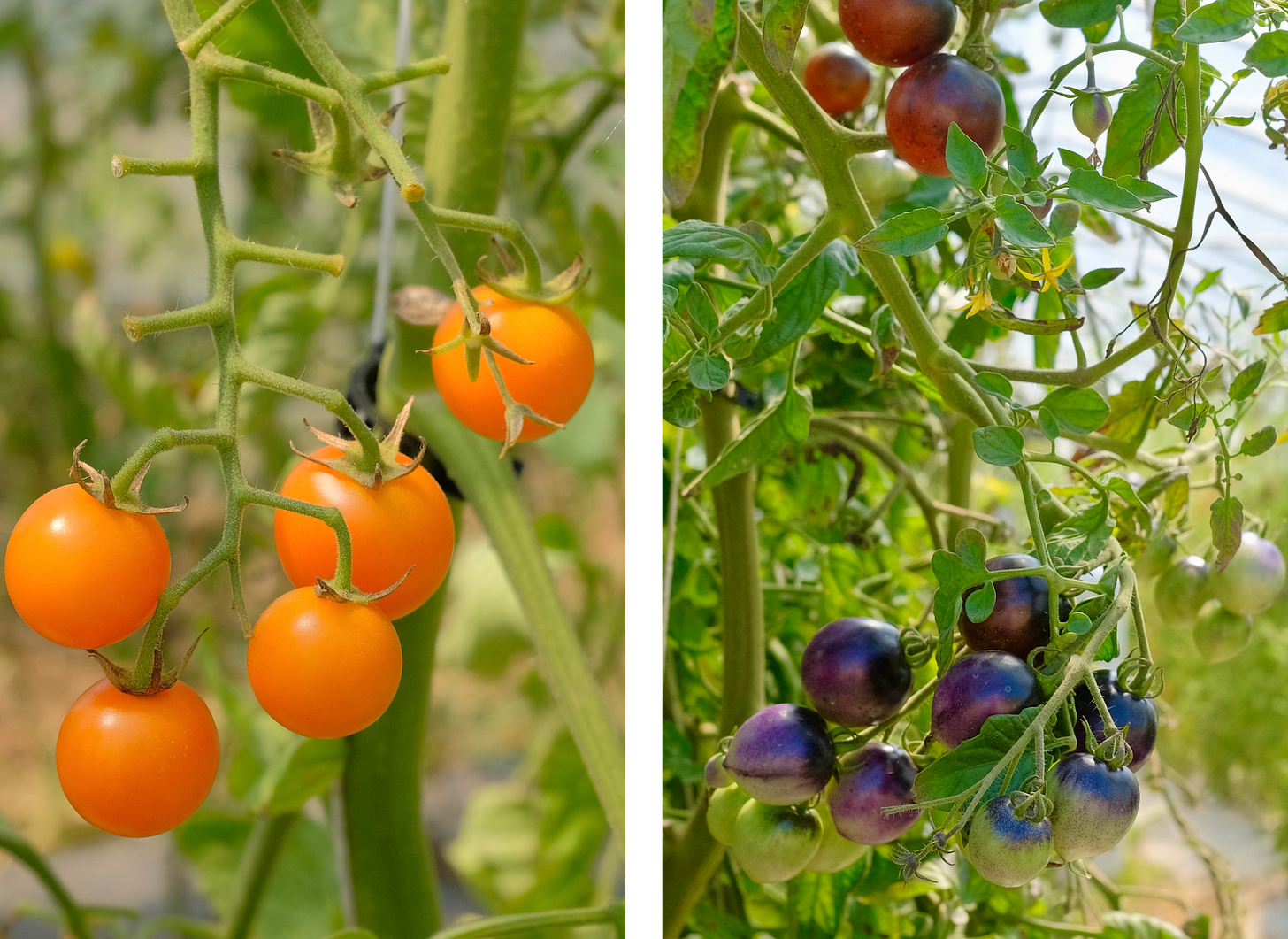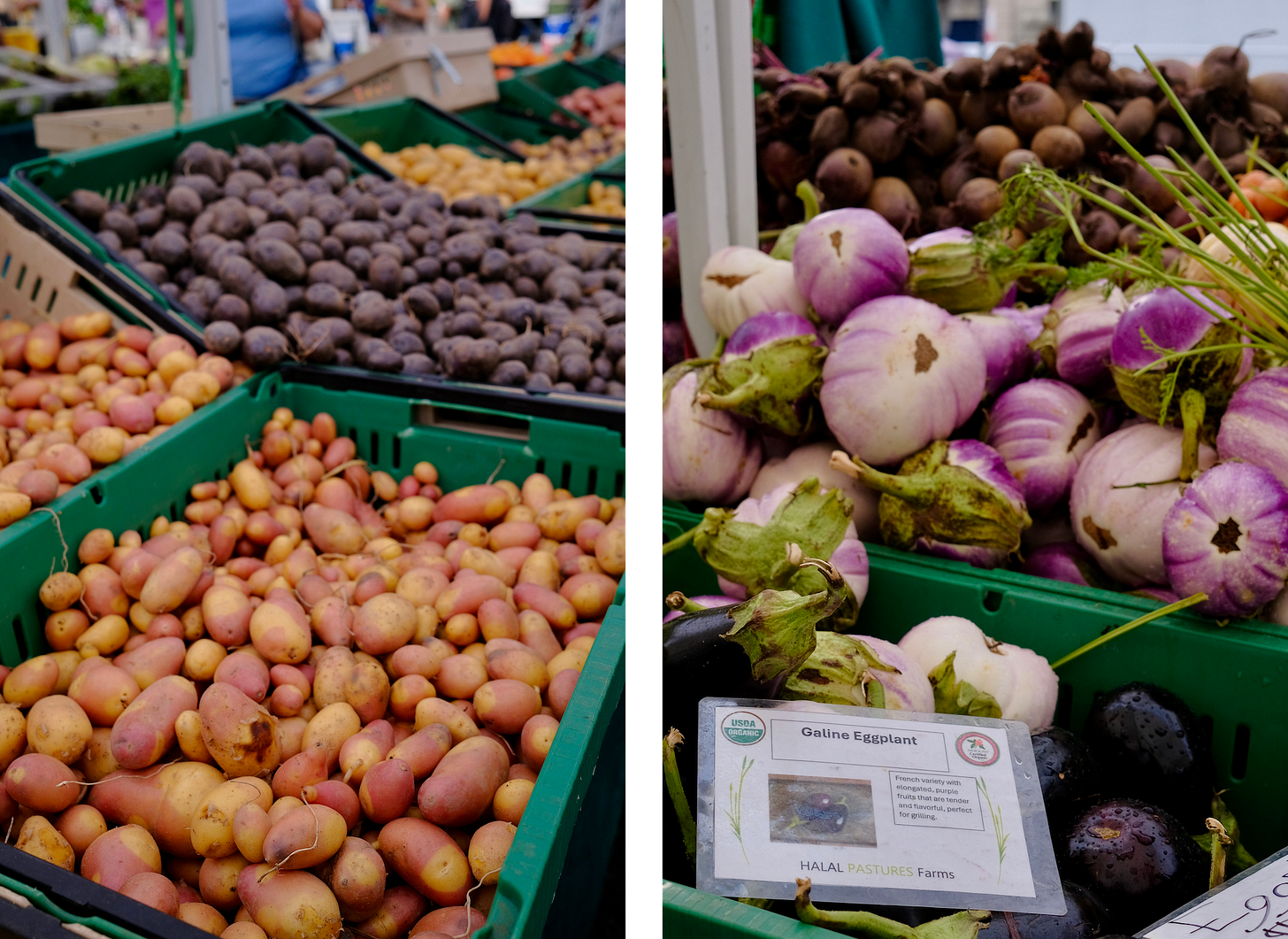Diane Aboushi Saleh gets excited about seed catalogs
A conversation with the co-founder of Halal Pastures Farm.
If you enjoyed this issue, head to the bottom to like or comment so others can find it. Thank you!
Diane Aboushi Saleh is an attorney-turned-farmer who, along with her husband, runs Halal Pastures Farm, an organic and halal-certified farm in the Hudson Valley. They serve markets across New York City and are dedicated to growing exceptional tasting vegetables. They’re one of my favorite vendors, and I love visiting their stand for an absolutely insane selection of interesting, heirloom varieties of produce. Diane and I chatted about selecting new varieties, catering to chefs, and how halal practices carry over to growing produce.
Brianna Plaza: You grow so many different varieties. How do you select what you grow?
Diane Aboushi Saleh: We grow over 50 varieties of tomatoes and about 400 different produce varieties. We pick a lot of varieties based on what looks interesting and what we think we can grow. We like to look at things that are different shapes and sizes and are interesting to us. We look for different tastes. There are new varieties coming out from seed companies, and that also plays a role in what we pick. We think about what kind of conditions plants need and if we can even grow it.
Brianna Plaza: You mention that taste is a factor in what you select, but how do you know how it’s supposed to taste before growing it for the first time?
Diane Aboushi Saleh: We get information from the seed companies telling us basically what they’re supposed to taste like and we match the flavor to that. Most of the time it works out, but sometimes it tastes very different. Sometimes it’s better than expected, and sometimes it just doesn’t taste anything like how it was supposed to taste.
Our tomatillos for example. We grow a certain variety every year and they’re not supposed to be so sweet. But every year they’ve come out really sweet for us. It’s really interesting.
Brianna Plaza: Do you select based on what chefs or customers want?
Diane Aboushi Saleh: You have to think about what’s a high-producing crop. What’s something that’s consistent and what people want? Everybody wants carrots for example, so we want to always make sure we have carrots. What variety we grow is going to depend on what grows well and tastes good. We grow Bolero and it tastes great and it’s good because it’s disease resistant, it’s strong, healthy, and delicious. I also get requests. People are always asking us if we have or can grow certain varieties.
There’s also a lot of emotional decisions. “Oh my good look at this cucumber this is so cool!” My husband will be flipping through the seed catalog and he’ll buy something random and he’ll be like “It just looked so great.” Or I’ll be flipping through a catalog and send him a variety and literally 5 seconds later, I’ll get an email notification from the seed company confirming the purchase.
Brianna Plaza: How do you decide what goes in the high tunnel (covered growing tunnels) versus out in the field?
Diane Aboushi Saleh: The things we want early production on, we’ll put in the high tunnels. Or if we think we’re going to be really affected by weather conditions. But we don’t have enough high tunnels — it’s prime real estate.
I have melons in the high tunnel that were planted in March and April that I am getting ready to take to the markets. And I seeded another high tunnel with melons last week. The plan is to hopefully grow melons until October.
Brianna Plaza: I know you raise halal meat. How does that philosophy carry over to produce?
Diane Aboushi Saleh: We first started out as a meat company. We worked with farmers in upstate New York who raised our herd for us and we processed it halal. We were on the same page as them for how we wanted the meat to be raised, and we ended up falling in love with the farming aspect, so we started the farm ourselves.
With vegetables, the philosophy is always the same. In Islam, there’s something called tayeb, which is a higher form of halal, and it means wholesome, pure, and good. We couldn’t really find food that met that standard, so we decided to grow it. That philosophy has been part of the entire mission since we started farming.
Brianna Plaza: You talked about the markets you sell at in the city. How do you decide which markets to go to or which new ones to enter?
Diane Aboushi Saleh: It’s a combination of what other markets we are running that day and if we can maximize the day. If I’m already going to Brooklyn and there’s a chance for us to go to Queens, okay, we’ll do that.
People have to be interested in our products, so it has to make sense financially. Is the community looking for what we have? I can’t just go to a market and have people not be interested in what we have to sell.
When we go to a market, we give it our all.
Brianna Plaza: What’s your favorite thing that you grow?
Diane Aboushi Saleh: I love Jimmy Nardellos sweet peppers very much. I love making my tomato sauce dishes with our heirloom tomatoes. I look forward to my eggplant because there are certain eggplant dishes that we like as a family and I will only eat them in summertime. I just refuse to have eggplant parmesan in January.
If you’re in Brooklyn, below is the weekly schedule for Halal Pastures. For other boroughs, you can check this Instagram post.
🌱Brooklyn Borough Hall: Tues + Sat, 8am-3pm (meat available on Tues)
🌱Bartel Pritchard Square: Wed, 8am-2pm
🌱Bay Ridge: 95th & 3rd Ave, Sat, 8am-3pm
🌱Park Slope: 5th Ave & 4th St., Sun, 9am-2pm (meat available)









Love this interview!